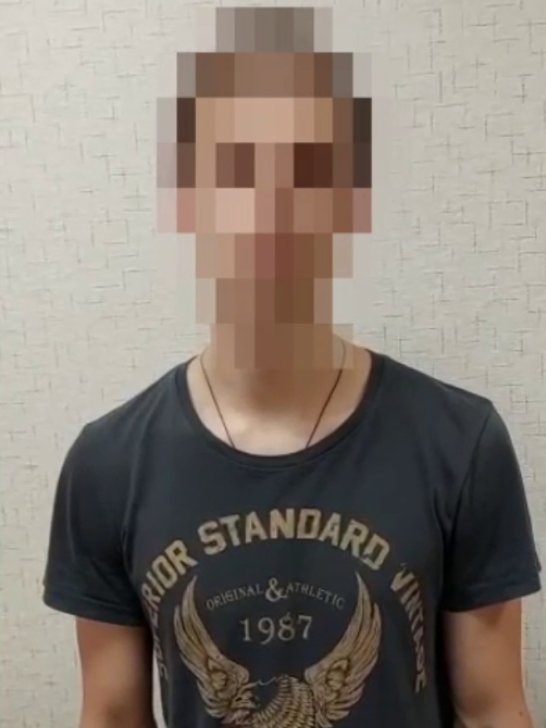In mid-June 2023, the Tambov Regional Court in western Russia issued a fine of 30,000 rubles (US$326) to IT entrepreneur Kirill Shvetsov. He was accused of failing to report a crime to the Russian authorities violating Article 205.6 of the Criminal Code. The case was initiated because Shvetsov did not inform the police about the anti-war views of an acquaintance from whom he purchased a book on «Avito», a Russian version of Craigslist.
Almost a year ago, I made the decision to purchase Dante’s «The Divine Comedy» on «Avito». It was a collectable, very old edition, nearly 100 years old. I realized that finding this work in such pristine condition and at an affordable price would be unlikely elsewhere.
I contacted the seller. When I arrived at the arranged location — a private meeting place in the countryside — a kid in his late twenties to early thirties greeted me with a bottle of beer in hand. We chatted and shared a cigarette.
We talked for five minutes. He was obviously drunk, and he started sharing his political views and perspective on current events. I neither disagreed nor supported him, saying, «This is your opinion, okay.» After that, we parted ways.
I exchanged contacts with the guy. It turned out that we had shared interest in literature. He promised to send me a link on Telegram to a book he had recently come across about psychology with religious undertones. I like to read these types of things for spiritual growth.
I wrote to him that evening and sent a link to YouTube. There was an audio version of the book and links to resources where one can buy the text version.

We had another conversation. First, we talked about the book, then about work and bam… he brought up the topic again, saying that he wanted to go to Ukraine to fight against our people. Supposedly, there is some organization that assists in crossing the border illegally, and he expressed his intention to try it. He started sending me links from YouTube and Telegram channels about this organization. With that, we said goodbye.
After a couple of days, we connected again for a brief chat. Once more, he shared his plans with me. As I read his messages, I found it ridiculous. I mean I saw this guy. I had this mental image of him, and his aspirations seemed entirely incongruent with that image. I thought to myself: «He’s probably spent too much time playing computer games and got carried away with a beer. Well, who hasn’t?»
I am in sales, so I am used to communicating with many different people. When I bought the book from him, I also decided to give him a little bit of my time. I did not think that conversation was substantial. We never spoke to each other again.
«Either you do as we say, or everything will be bad for you»
A month passed. My colleague and I were sitting and working in the office when six people entered: four FSB (Federal Security Service of the Russian Federation) officers and two witnesses. The witnesses turned out to be conscripts who served in the FSB. We learned about this because one of them was our friend — we were even preparing to throw him a party in a few days as it was nearing the end of his service.
The FSB officers took our computers and phones, and set all the devices on airplane mode. Thenthey showed us a sheet of paper — likely a search warrant, because they started to inspect everything, overturning the entire office.
They did not explain the reason for the search. We did not understand: people were turning things over in our office, and we didn’t know what to do. The search lasted about an hour and a half. They inquired about every piece of paper they found.
We could not contact anyone all that time. We were not allowed to call anyone or seek legal help. An hour and a half later, when the officers finished the search, they packed all the equipment in black bags and took us to the FSB regional office. There the officers placed us in different rooms.
The most interesting thing is that my colleague had nothing to do with all this. He only knew that I had bought a book on «Avito». I did not tell him about the content of my conversation with the bookseller.
The officers interrogated us in the FSB building. They released my colleague at about 7:00 pm but kept me until 9:00 pm. There, they explained that they had detained me on suspicion of committing a criminal case, and my colleague was allegedly a witness. In the phone they seized from me, the officers found my correspondence with the seller from «Avito».
How did they find me? It turned out that the seller did, in fact, go to war; he wanted to do something at the border. Border guards caught him, took away his phone and found our messages. Then they started looking for me.
The interrogation was strange. When I was questioned, the FSB officers typed my statement and took it to their superiors for approval. I think the leadership did not like what I was saying. The officers redid the protocol. But in the end, the text they printed was not composed of my words — the FSB officers wrote what they wanted.
Then, they photographed my correspondence with the bookseller and questioned me about every phrase. Once the authorities approved the final version of my testimony, they released me. Several times after that, they called me to the FSB again. I came, they copied something, and I had to provide my signature.
One day the FSB called me, saying «we will record a video.» They made it clear that if I didn’t show up, they would put me on the wanted list. It felt to me like a hopeless situation, to say the least. Even before that, the FSB threatened me several times: «Either you do everything we say, or face dire consequences.» They even went so far as to threaten to contact the tax office, inform my relatives, and report to my university, because I was still a student at that time.
I eventually agreed to record a video as they requested. They handed me a sheet of paper with a prepared text, and I read it. The text stated that I admitted my responsibility for not informing law enforcement of my correspondence with the bookseller and felt guilty about my actions. Recently, this video surfaced online.

Then the case didn’t progress for a long time. Eventually, they sent the correspondence [in a chat with a friend] for a linguistic examination, which was far from an expert level. The evaluation contained numerous spelling mistakes and errors in logic. Clearly, the person who examined it was not fluent in Russian.
«The judge asked the lawyer questions while she was scrolling through cooking recipes on social media»
During this period, I had no access to my phone, because it was taken away as material evidence and never returned. They did not return my SIM card either, so I didn’t even have access to my bank accounts.
For a while, I focused on day-to-day issues and didn’t think about the need for a lawyer, but I later learned that certain documents required a lawyer’s presence for signing. I was appointed a lawyer by the state, but when I asked her questions, trying to understand my situation, she was uncooperative. Both the lawyer and the investigator pressured me, demanding that I do everything they asked and promising I would only incur a fine of 30 thousand rubles (US$326). However, they did not inform me that I would end up with a criminal record.
The first trial took place at the end of September 2022, and I attended with the public defender. It was my first time in a criminal court, and I had no idea what to expect.
When the judge arrived, he began reading something and posing questions to the lawyer. However, throughout the proceedings, she remained buried in her phone, scrolling through recipes on social media. I had not received even the slightest bit of assistance from her before, but this behaviour completely infuriated me. I asked the judge if I could refuse the lawyer’s services.
«How is that possible? Why?» — the judge was taken aback.
«Well, do you think it’s acceptable for a lawyer, representing their client in a criminal trial, to show absolutely no interest in the case and sit there flipping through recipes rather than doing their job?»
Upon hearing this, the judge halted the proceedings, and I parted ways with the public defender to search for a private lawyer. Now, I have two attorneys from the same agency — the second one got involved because they became aware of the situation and wanted to offer their assistance.
I attended the subsequent meetings with my new lawyer. The hearings were repeatedly postponed, totaling about nine sessions in the first court. During the last one, I was forcefully removed from the courtroom when I attempted to film the verdict. Bailiffs twisted my hands and escorted me out into the corridor. The verdict was delivered in my absence, resulting in a fine of 30 thousand rubles (US$326).
I realized that, most likely, they wouldn’t send me to jail, but I had no desire to pay even 30 thousand rubles to some obscure law firm associated with the FSB. For what reason? I’d rather use that money to buy my mom a gift.
Following the announcement of the verdict, my lawyers and I filed an appeal to the regional court. However, the meetings were again postponed five times. Almost every time, I was forcefully removed from the courtroom.
The first time I was kicked out because I asked the judge to introduce himself. I was not even allowed to attend the last meeting without an explanation for why I needed to be there.
Now I have six months to appeal the regional court’s decision, which essentially upheld the previous sentence. However, I’m not in a hurry to proceed with the appeal because I am extremely busy with work. Due to the ongoing search, I’ve lost access to many programs, and some issues remain unresolved.
This entire situation feels incredibly absurd to me. I never imagined that a text conversation could lead to such harassment. Fortunately, my close friends and acquaintances are supporting me during this challenging time. On the other hand, my relatives are indifferent to the situation and do not seem concerned about these problems. While I never expected any help from them, it’s disheartening that they haven’t offered their assistance.
I ceased all communication with the bookseller after the incident. He was detained, and in June 2023, he received a seven-year sentence in a high-security prison for his involvement in the activities of an illegal armed group (Part 2 of Article 208 of the Criminal Code). Currently, he is serving his sentence in jail. The only time I saw him was when he briefly appeared online from jail, during one of the meetings related to my case. As of now, I remain unaware of any further details regarding his fate.
Recorded by Karina Merkuryeva



